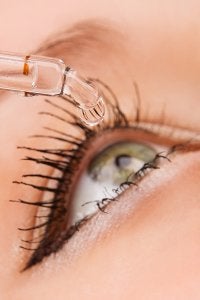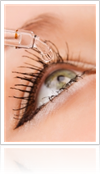Dry eye syndrome is a common problem among women over 40 due to hormone changes during and after menopause. The condition causes mild to severe symptoms, including dry, red, itchy, and irritated eyes. Luckily, if you suffer from dry eye symptoms near Manchester , an eye doctor or ophthalmologist can help. Keep reading to learn more about how to cope with dry eyes as you age.
Consult with Your Primary Care Physician
Hormonal changes are often the cause of dry eye syndrome in women post-menopause. Other health conditions  can also contribute to dry eye symptoms. Rheumatoid arthritis and thyroid conditions are attributed to aging, and can also exacerbate dry eye syndrome. Medications can also affect your eyes’ ability to produce tears, severely worsening existing dry eye symptoms. Your primary care physician can help you find medical treatments that won’t irritate your eyes further.
can also contribute to dry eye symptoms. Rheumatoid arthritis and thyroid conditions are attributed to aging, and can also exacerbate dry eye syndrome. Medications can also affect your eyes’ ability to produce tears, severely worsening existing dry eye symptoms. Your primary care physician can help you find medical treatments that won’t irritate your eyes further.
Consider Using Artificial Tears
Artificial tears can lubricate your eyes, providing relief for the dryness and irritation. Some eye drops can also help with itchiness. Over the counter eye drops that are meant for itchiness and red eyes associated with allergies will not be particularly helpful for dry eye syndrome, and may even further irritate your eyes. Over the counter dry eye treatments only provide temporary relief, however, and your symptoms will continue to reoccur. Many eye doctors combine artificial tears with other forms of dry eye treatment for better results.
Ask Your Eye Doctor About IPL Dry Eye Treatment
Your eye doctor or ophthalmologist can provide dry eye treatments that not only offer relief of your current dry eye symptoms, but also prevent future occurrences of dry eye syndrome. IPL dry eye treatment utilizes a safe, gentle intense pulsed light therapy to treat the underlying cause of dry eye syndrome. The initial treatment only takes about three to five minutes, and is pain-free. You can continue to see a reduction in dry eye symptoms by visiting your eye doctor once or twice a year for additional IPL treatments.

